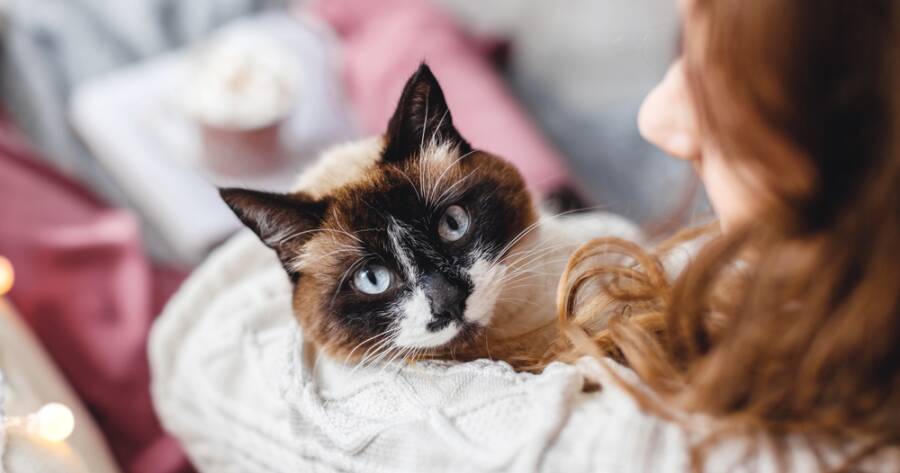Cats are masters at hiding discomfort, making it difficult to tell when something is wrong. Subtle changes in behavior, appetite, or grooming habits can be early signs of illness that often go unnoticed. A once-playful cat becoming withdrawn or a fastidious groomer neglecting their coat could indicate an underlying health issue. Paying attention to these small changes can make a big difference in catching problems early. Knowing what to look for helps ensure your feline friend stays happy and healthy.
Hiding or Sudden Behavior Changes
Cats naturally seek quiet places to rest, but excessive hiding or withdrawing from family members may indicate illness or stress. If your normally social cat starts avoiding interaction, refuses affection, or hides for long periods, they could be experiencing pain or discomfort. Increased aggression, irritability, or uncharacteristic clinginess can also signal health issues.
Behavioral changes often precede physical symptoms, making them an important indicator of underlying problems. Keep track of any shifts in routine, mood, or interactions with other pets. If your cat becomes unusually lethargic or unresponsive, immediate veterinary attention is required. Subtle changes in personality may seem insignificant, but they are often a cat’s way of signaling that something isn’t right.
Unusual Litter Box Behavior
Changes in litter box habits can indicate a variety of health concerns. Straining to urinate, producing small amounts of urine, or crying out in pain can be signs of a urinary tract infection or even a life-threatening blockage, especially in male cats. Frequent urination or accidents outside the litter box might be linked to diabetes, kidney disease, or stress.
Constipation or diarrhea can point to digestive issues, food allergies, or infections. If your cat suddenly avoids the litter box altogether, it could be due to discomfort, mobility issues, or stress-related factors. Regular monitoring of your cat’s litter box habits helps catch potential health problems early. If abnormal bathroom behavior lasts more than a day, consulting a vet is essential.
Grooming Less (or Too Much)
A cat’s grooming habits are a strong reflection of their overall health. A normally well-groomed cat that suddenly appears unkempt, with matted or greasy fur, may be experiencing pain, arthritis, or illness that makes grooming uncomfortable. Overgrooming, on the other hand, can indicate stress, allergies, skin infections, or parasites. Excessive licking, particularly in one area, may suggest pain or irritation. Pay attention to bald spots, scabs, or excessive hairballs, as these can point to underlying issues. If you notice a decline in grooming or obsessive licking, gently check for signs of discomfort and consider a vet visit. Healthy cats maintain their coats meticulously, so any change in grooming habits should be taken seriously.
Changes in Eating or Drinking Habits
A cat that suddenly eats less or refuses food may be experiencing pain, digestive issues, or dental problems. On the other hand, an increase in appetite could signal conditions like hyperthyroidism or diabetes. Drinking more water than usual may indicate kidney disease or diabetes, while drinking less can lead to dehydration.
Pay attention to how often your cat visits the water bowl and whether they struggle to chew or swallow. Wet food, water fountains, or broths can encourage hydration if intake decreases. If changes persist for more than a day or two, a vet visit is necessary. Since cats are prone to hiding illness, shifts in appetite and hydration should never be ignored, as they can be early warning signs of serious conditions.
Changes in Vocalization or Breathing
A sudden increase in meowing, yowling, or other vocalizations may indicate distress, pain, or cognitive decline in senior cats. Some cats become more vocal when anxious or confused, while others cry out due to hunger or discomfort. Conversely, a typically talkative cat becoming unusually silent could also signal illness.
Labored breathing, wheezing, or open-mouth panting are serious symptoms that require immediate veterinary attention. Respiratory infections, asthma, or heart disease could be the cause. Paying close attention to how and when your cat vocalizes can provide insight into their well-being. If you notice persistent changes in their voice or breathing patterns, prompt medical evaluation is the best course of action.
Sudden Weight Loss or Gain
Unexplained weight loss can be a major red flag for underlying health problems such as hyperthyroidism, diabetes, kidney disease, or cancer. A noticeable decrease in muscle mass, even with a normal appetite, should not be ignored. Conversely, rapid weight gain or bloating could indicate hormonal imbalances, fluid retention, or metabolic disorders.
Since weight changes are often gradual, regular weigh-ins at home or at the vet help track any concerning trends. A cat that appears thinner despite eating normally may require blood tests to check organ function. If you observe significant changes in your cat’s weight, consulting a veterinarian ensures early intervention and proper care. Maintaining a healthy weight is essential for a cat’s overall well-being and longevity.
Trust Your Instincts and Act Early
Cats may not always show obvious signs of illness, but subtle changes in behavior, appetite, or grooming can be their way of signaling distress. As a pet owner, trusting your instincts and monitoring these small shifts can make all the difference in catching health issues early.
Regular vet checkups, a watchful eye, and quick action when something seems off can help keep your feline friend happy and healthy. A little attention now can prevent bigger problems down the road.

